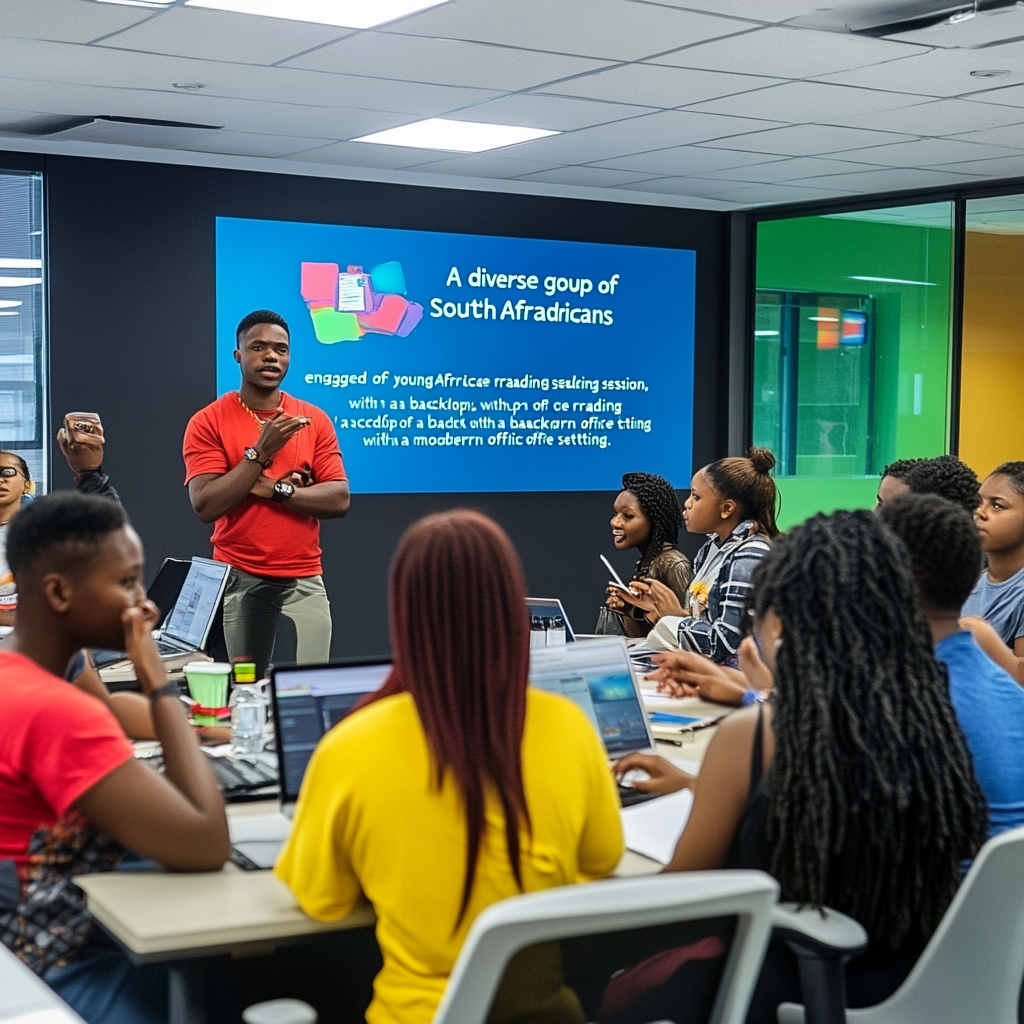
We Value Your Privacy
We use cookies to ensure basic functionalities and to enhance your experience. You can accept or decline cookies, or manage your preferences.
Privacy Policy | Cookies Policy
Explore how workplace readiness programs are closing the gap between education and employment in South Africa, providing skills and opportunities for the youth.
5min read
South Africa faces a significant challenge in bridging the gap between education and employment. With a high youth unemployment rate, it’s clear that traditional education systems are not adequately preparing students for the workforce. Workplace readiness programs are designed to fill this void, equipping young people with the skills and experience needed to thrive in a professional environment. These programs often include training in soft skills such as communication, teamwork, and problem-solving, as well as technical skills specific to various industries.
Successful workplace readiness programs in South Africa incorporate several key components. Firstly, they provide hands-on experience through internships or apprenticeships, allowing participants to apply what they’ve learned in real-world settings. Secondly, mentorship plays a crucial role, with professionals guiding and advising young individuals throughout their journey. Lastly, these programs often partner with local businesses to ensure that the skills being taught are aligned with industry needs, thereby increasing the employability of graduates.
Both the South African government and the private sector play pivotal roles in the success of workplace readiness programs. Government initiatives often provide the necessary funding and infrastructure, while private companies offer practical opportunities and resources. For instance, the Youth Employment Service (YES) initiative collaborates with businesses to create work experiences for young people, aiming to address the skills mismatch in the job market. This collaboration not only benefits the youth but also helps businesses build a future-ready workforce.
Despite the benefits, workplace readiness programs in South Africa face several challenges. Access to these programs can be limited, particularly in rural areas. Additionally, there can be a disconnect between the skills taught and the actual requirements of employers. To address these issues, there is a need for more inclusive policies and a stronger alignment between educational institutions and the business community. By fostering partnerships and leveraging technology, these programs can be made more accessible and effective.
Success stories from workplace readiness programs abound in South Africa. For example, many participants of the Harambee Youth Employment Accelerator have secured stable employment, attributing their success to the training and support received. These programs not only help individuals gain employment but also contribute to the overall economic growth of the country. By reducing youth unemployment, they address broader social issues such as poverty and inequality, creating a more prosperous and inclusive society.
The future of workplace readiness programs in South Africa looks promising, with innovations continually emerging to enhance their effectiveness. Digital platforms are being increasingly used to deliver training and mentorship, making these programs more accessible to a wider audience. Additionally, there is a growing emphasis on lifelong learning, encouraging individuals to continuously update their skills to stay relevant in a rapidly changing job market. By embracing these innovations, South Africa can ensure that its youth are well-prepared for the challenges and opportunities of the future.
Workplace readiness programs are initiatives designed to prepare individuals, particularly young people, for the professional world by equipping them with essential skills and experience.
These programs are crucial in South Africa due to the high youth unemployment rate and the gap between education and the skills required by employers.
These programs help businesses by creating a pool of well-prepared, skilled candidates who are ready to meet the demands of the job market.
The South African government often provides the necessary funding and infrastructure to support these programs, in collaboration with the private sector.
Access can be limited in rural areas, but initiatives are underway to make these programs more inclusive and accessible through technology and policy changes.
Mentorship and internships provide hands-on experience and guidance, helping participants apply their skills in real-world settings and receive valuable feedback.
The future looks promising with digital platforms and innovations making these programs more accessible and effective, along with a growing emphasis on lifelong learning.